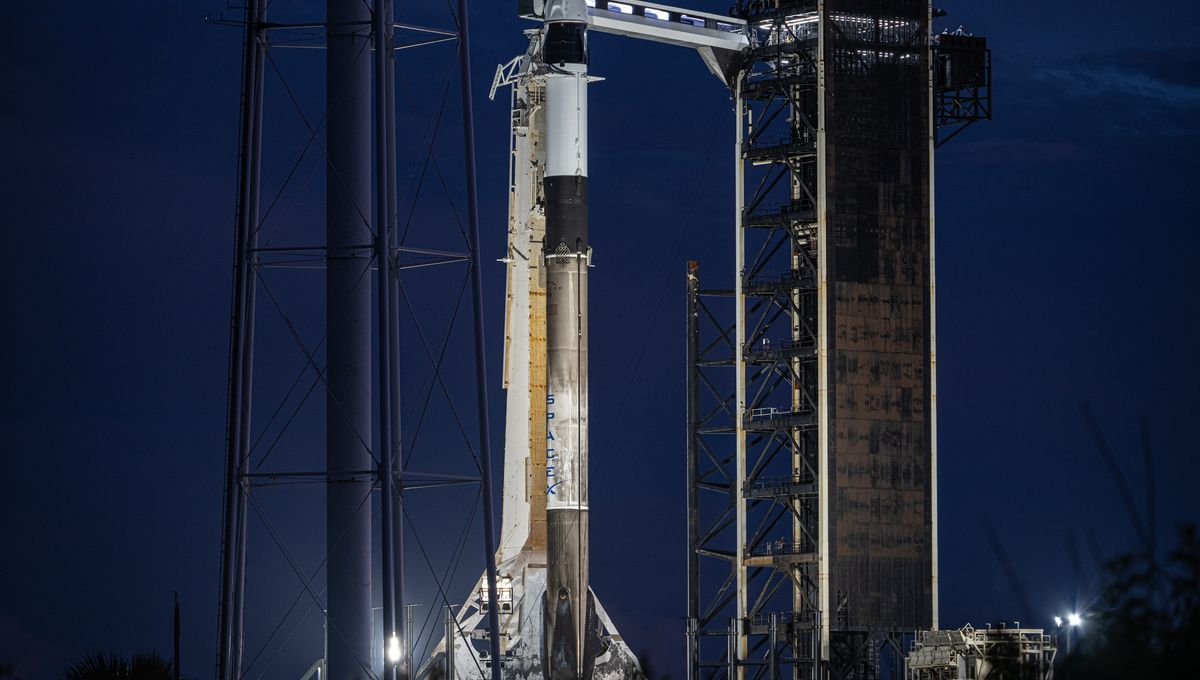
The first mission of the Polaris Program, called Polaris Dawn, is expected to launch on Monday following weeks of delays. Some of them were weather-related; since the craft will not dock with a space station, they need to make sure they have good weather at launch and reentry. It also did not help that the Federal Aviation Administration (FAA) grounded SpaceX’s Falcon 9 rocket following a rocket explosion on landing.
The investigation into the incident has now concluded, however, with the FAA giving the go-ahead for launch.
The mission is operated by SpaceX on behalf of billionaire Jared Isaacman, who is joined by pilot Scott Poteet, mission specialist Sarah Gillis, and mission specialist and medical officer Anna Menon. The launch window opens on Monday – September 9, 2024, at 07:38 UTC – which is the middle of the night for the US.
If it is anything like the first attempt, you can watch the launch on X (Twitter) – it doesn’t appear that a broadcast has been set up yet, but it will likely be shared by the Polaris Program account when it does. X, which is also owned by Elon Musk like SpaceX, has been trying to rival YouTube and TikTok as a video platform, but it has struggled, most recently with a disastrously glitchy interview between Musk and Donald Trump.
Polaris Dawn aims to break several records and do some cool science. It will fly as far as 1,400 kilometers (870 miles) away from Earth; this will be the furthest humans have traveled since the Apollo mission and the furthest humans have been in orbit around the Earth. Gillis and Menon are also set to break the record for how far women have been from our planet.
The goal of the mission is to conduct the first-ever extravehicular activity on a commercial spaceflight mission. The SpaceX capsule has no airlock, so all four crew members will have to don specially designed suits. While only Isaacman and Gillis will be out of the vehicle, this will be the highest number of humans in the vacuum of space.
The team will also conduct several medical assessments, including for the spacewalk, to try and understand the effect of decompression sickness, among other conditions, experienced by astronauts in space.
The mission is expected to last five days in space, returning either in the Atlantic Ocean or in the Gulf of Mexico.
Source Link: Polaris Dawn Eyes Up Monday For Historic Launch, Following SpaceX Investigation